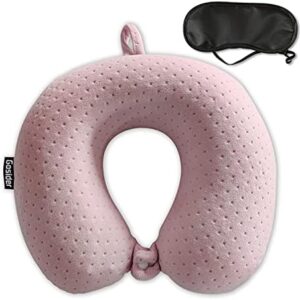Hydrating almost exclusively on Aperol spritzes. Slothing in bed until noon. Pretending the hotel gym doesn’t exist. We go on vacation to feel relaxed, and relaxing our usual routines is part of the fun.
“What makes travel so exciting is the novelty—experiencing new cultures, seeing new places, and trying new foods,” Anthea Levi, RD, a registered dietitian based in Brooklyn, tells SELF. There’s zero reason to feel guilty if your best vacation life looks very different from the schedule you tend to follow at home, Levi says (after all, that’s kind of the whole point, right?). And to be totally clear, you shouldn’t feel pressure to “stick” to certain health habits while traveling—or anytime, for that matter.
Still, many of us do feel our best, physically and emotionally, with a little consistency, whether that means regular and filling meals for energy, getting a sweet endorphin boost from working out, or clocking enough sleep. So as much as you might be looking forward to “getting away from it all,” it’s also understandable if you’re worried that shaking up your routine might make it harder to feel as good as you do at home.
But we’re here to ease your mind with a friendly reminder: This isn’t an all-or-nothing situation. Here’s some expert advice on how to commit to a few healthy-enough habits that are easy to maintain on a trip—while still enjoying yourself, Aperol spritzes (or mocktails) and all.
1. Before you go away, reject the “be good” mindset.
If you’re concerned an upcoming vacation is going to throw off your typical food routine, it’s not uncommon to start thinking about needing to be “good” to somehow “earn” your trip, Alissa Rumsey, RD, author of Unapologetic Eating and founder of Rumsey Nutrition Consulting, tells SELF. People who have this mindset are “almost precompensating for what they think is going to happen on vacation,” Rumsey says.
This approach is entirely unhelpful for a few reasons. A big one: It assigns moral value to certain foods, a core tenant of diet culture. (PSA: No foods are “good” or “bad,” and you’re allowed to eat what you want without “saving up” for it first!) Plus, when you deprive yourself of things you really love, you’re less likely to be able to eat mindfully and pay attention to your body’s hunger cues, Rumsey explains, because restriction can make you feel out of control. So if you’ve been trying to be “good” for weeks, when you finally go away, “you can have an ‘F it’ mentality,” she says—and end up feeling unwell as a result.
To shift your mindset, Rumsey suggests focusing on eating enough, eating consistently, and eating foods you actually like in the lead-up to a trip (and all the time!). Just remember that there may (will) still be times when you choose foods that don’t make you feel great, for example, or eat past the point of fullness. “Every eating experience is different,” Rumsey says, adding that some meals might not be the most intuitive or in sync with your body’s hunger cues, and that’s okay. “But continue practicing coming back to yourself and your body and just staying connected as much as you can,” she adds.
2. Ask yourself if you have any nonnegotiables.
Everyone has different health priorities—you might feel really anxious and overwhelmed without your twice-weekly yoga class, for example. Or maybe you struggle with gas and bloating and are nervous that new foods and routines will cause your digestive system to go totally haywire.





